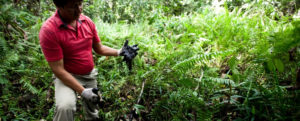
Originally published on CommonDreams.org
A U.S. appeals court on Monday “inexplicably” sided with oil giant Chevron in a massive case over its legacy of pollution in the Amazon.
Chevron persuaded the court to block enforcement of an $8.65 billion judgment delivered by Ecuador against the energy company for rainforest damage.
The three-judge panel of the 2nd U.S. Circuit Court of Appeals in New York agreed with a March 2014 ruling by U.S. District Judge Lewis A. Kaplan that found the judgment had been obtained through bribery, coercion, and fraud—a decision that astonished environmental rights activists following the case.
The decision is unlikely to end the legal battle altogether, however, as the court also noted that Kaplan’s ruling did not invalidate the Ecuadorean judgment or prevent its enforcement outside of the United States.
Karen Hinton, the American spokesperson for the Ecuadoreans, called it “a sad day for the U.S. justice system.”
“As disappointed as we are, this ruling will not deter the Ecuadoreans, their lawyers and their supporters from aggressively seeking justice in Canada and in other countries where litigation is underway to seize Chevron assets,” Hinton said.
In a tweet, the activist group Amazon Watch stated, “Justice denied as US Appeals court inexplicably upholds verdict based on bribed testimony & sides w/gross polluter @chevron over Ecuadorians.”
Calling the decision “absurd,” the group also said it “dealt a blow against free speech & corporate accountability everywhere.”
The lawyer in the case, U.S.-based Steven Donziger, has attempted to hold Chevron accountable for water and soil contamination in the Amazon from 1964 to 1992. He has chased after the fossil fuel giant for more than two decades.
An attorney for Donziger, Deepak Gupta, said Monday, “Never before has a U.S. court allowed someone who lost a case in another country to come to the U.S. to attack a foreign court’s damages award. The decision hands well-heeled corporations a template for avoiding legal accountability anywhere in the world. And it throws the entire international judgment enforcement framework out the window.”
